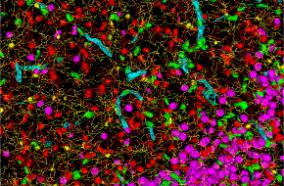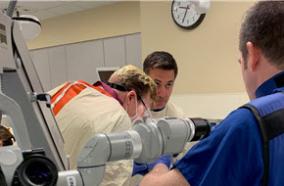Neuromodulation of approach-avoidance behavior for future psychiatric disorder therapies This proposal will focus on characterizing approach-avoidance in humans by developing a task to quantify this behavior, understand how it is represented in the brain, and how it is influenced by neuromodulation. Approach-avoidance behavior is thought to be a key aspect of various mental health disorders, causing patients to avoid potential stimuli for fear of negative outcomes, regardless of potential benefits. Work in OCD patients has shown that subjects are more avoidant of triggering images, seeking to avoid anything that could potentially induce disorder related anxieties. Recently, neuromodulation has shown to be an effective treatment for OCD and is potentially shifting patient behavior towards making more effort to approach potentially uncomfortable stimuli, providing more opportunities to habituate to these triggers. Our current understanding of these disorders is limited and there is a need to better understand approach-avoidance behavior in the brain and how to can use that to improve treatment. We plan to use the infrastructure we have developed at UW to create a unique VR behavioral task that can be used to assess approach-avoidance behavior with concurrent real-time neural streaming. This will allow us to investigate the behavior in new depths, understand the neural activity underlaying this behavior, and develop improved neuromodulation therapies to help regulate this behavior in the future.
Sponsor: UW Royalty Research Fund




















